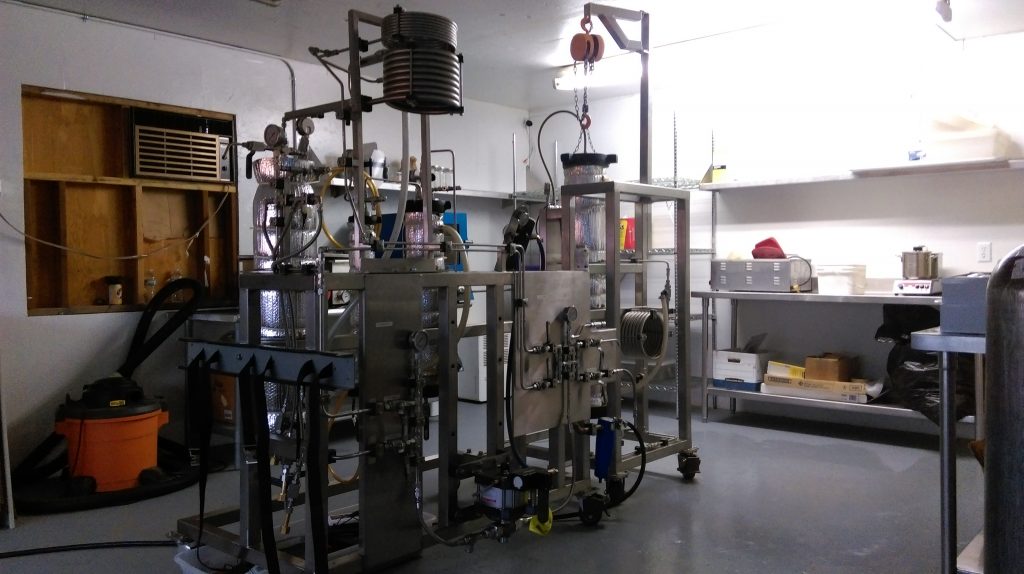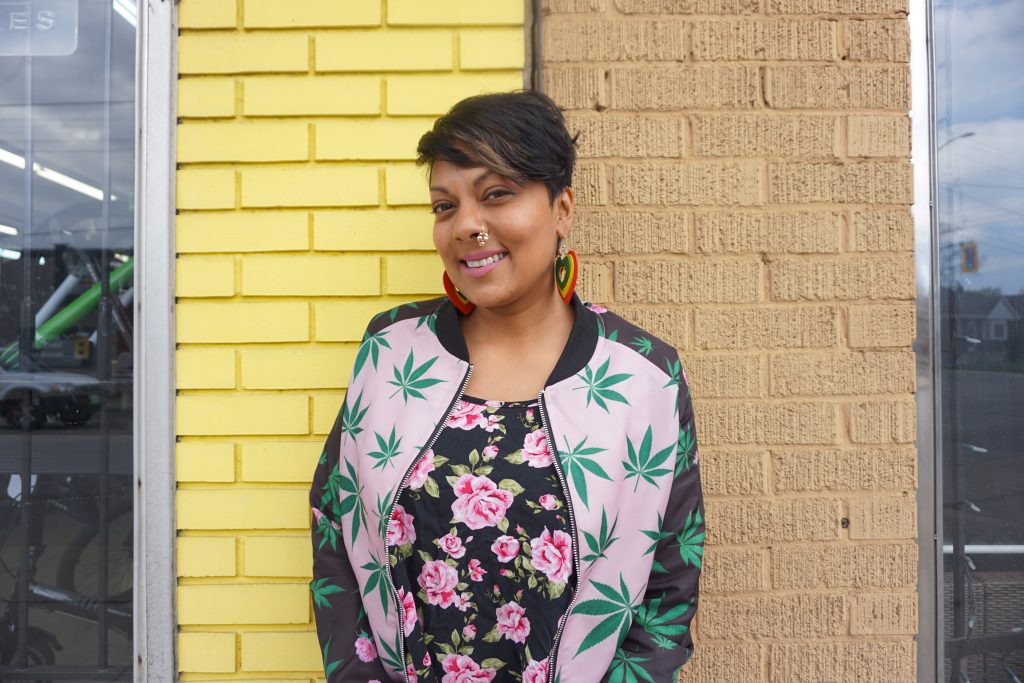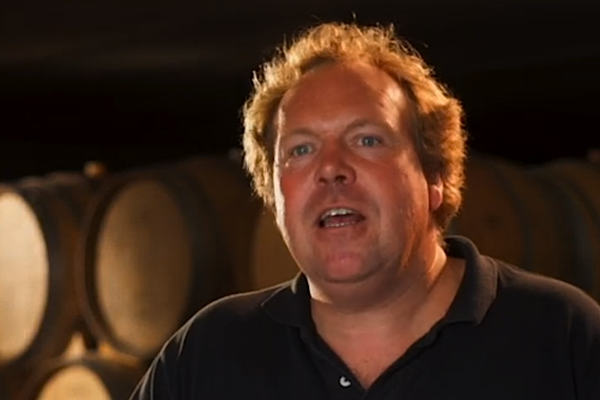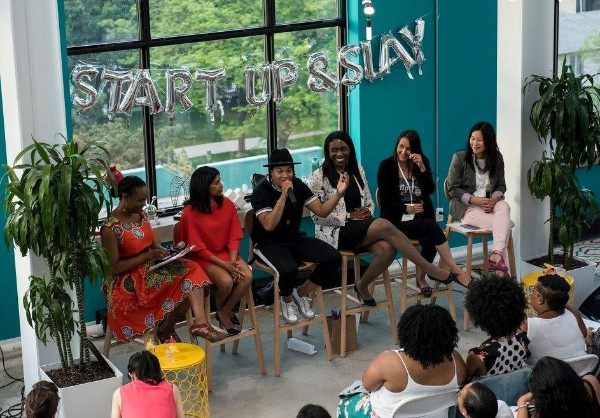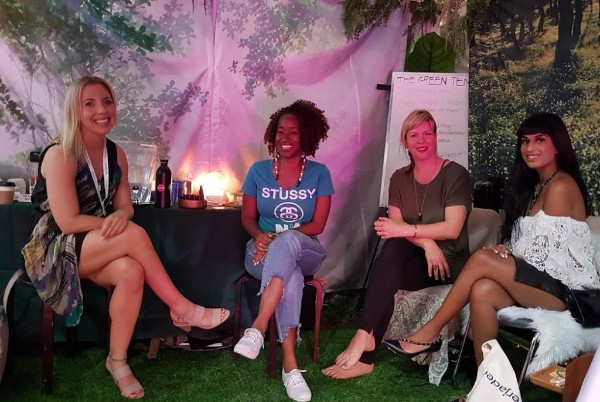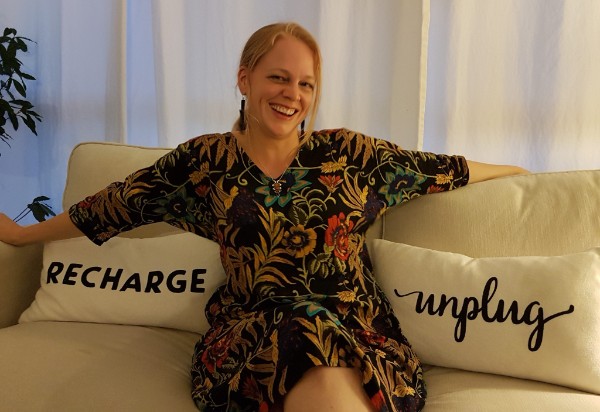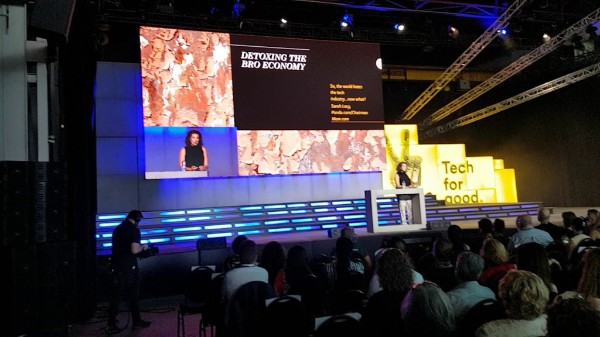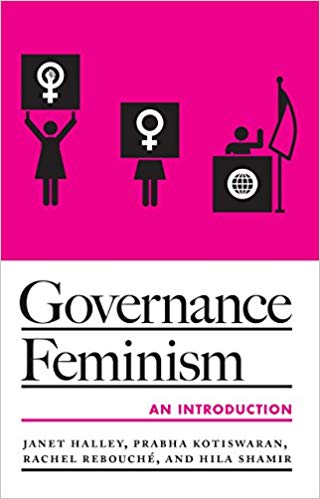
Photo of Ani DiFranco, Righteous Babes Tour Poster
PK’S VIEWPOINT
To detox from a full day of narratives about entrepreneurship from a technology sector point of view at Toronto’s recent mega technology sector conference, #Collision, I turned to Ani DiFranco and her newly released memoir, No Walls and the Recurring Dream.
It was such a joy to read.
DiFranco is an award winning, singer-songwriter who embraces the activist label as well as being a political and feminist entrepreneur. She has sold over 5.5 million albums—on her own terms. In fact, DiFranco was one of the first artists to create her own label back in the early 1990s. She built her fan base by playing gig after gig in tiny bars and at off-beat music festivals…for two decades. She has been celebrated and vilified for her views. Not to mention her “bad feminist” moments. But many have looked to her for inspiration on how to stay authentic while building growing a successful, values-led enterprise.
As a flawed human and fiercely independent entrepreneur with ambitions to build a sustainable enterprise, I sometimes ask myself after attending tech sector events like #Collision, where it’s easy to get caught up in the intoxicating and chromatic entrepreneurship narratives, “am I doing it “right”? After all, if everyone else is out there practicing lean startup methodology and signing with a “label,”—the tech equivalent to inking a deal with a VC—or learning the right way to pitch so they can get into a hot accelerator, shouldn’t I be doing the same? If I want to see my enterprise and everyone involved with it thrive, shouldn’t I be playing along?
Fortunately, a line from page 115 of DiFranco’s book 115 helped me answer that question.
Difranco writes, “I think my one shining gift in life has been to know who my teachers are and to follow them around looking for ways to be at their service. It was easy for me to turn down record deals because I didn’t find any of my teachers in the music industry spheres.“
Brilliant.
It’s so important for those of us going against the grain to find the right teachers. Finding the right teachers means knowing who you are, understanding what you want, and finding ways to connect with the people you want to learn from.
It’s also important to find—or build from scratch—the right community. Not an echo chamber, but a community that has the capacity to challenge you, and hold you accountable. In DiFranco’s case, that community was her fan base.
I sometimes imagine what DiFranco’s music would have been like if, as a young entrepreneur, she had attended the music industry’s equivalent of events like #Collision. What if she believed going after only mass markets was the only way to succeed, and signed that record deal? I shudder at the thought of her dressed up and behaving like a Pussycat Doll, smiling and singing: “I’m telling you to loosen up my buttons baby (uh huh)”, instead of showing up in jeans, shaved head and a t-shirt singing: “Science chases money and money chases its tail / And the best minds of my generation can’t make bail.” A few lyrics from Garden of Simple, Ani DiFranco
DiFranco’s record label Righteous Babes includes a touring company, a retail operation, a music publisher, and a foundation, all in addition to the label. Annual revenues are reported to be approximately $5M. The company employs over 20 people. Righteous Babes purchased a 19th century church in Buffalo, NY, and converted it into a 1200 seat concert hall called appropriately—Babeville.
Now let’s think about that. Take it in. And then ask yourself how the next Ani DiFranco or outspoken political, activist entrepreneur with no desire to compromise or “exit”, might go about finding relevant support, or the right teacher, within today’s impressive maze start up ecosystems?
Exactly.

THIS WEEK ON LIISBETH

Pleasure Activism book launch by
Another Story Book Shop at Lula Lounge in Toronto
ONE NIGHT STAND WITH A REVOLUTIONARY
adrienne maree brown is an author, doula, women’s rights activist and black feminist based in Detroit, Michigan. And a revolutionary.
Known for her best seller, Emergent Strategy and now, Pleasure Activism, she addresses ways we can shape our often heavy social change work into meaningful, collaborative, pleasurable experiences. LiisBeth caught up with AMB in Toronto at her Pleasure Activism book launch.
In our interview with AMB after the show, we asked Brown what it would take to create a socially just world and about her experience as the Executive Director of The Ruckus Society, a multi-racial network of trainers dedicated to ecological justice and social change movements. Listen to the audio recording here. Or read about it all here!
FEMINIST FREEBIE!

The Coupon code LIISBETH will be good for 15% off Pleasure Activism books at akpress.org from May 31 through June 30.

Paul and Ruby McConnell
TAKING THE HIGH ROAD TO SUCCESS
It’s summer (sort of). The outdoor cannabis growing season is here. We felt it was time to check in once again with women cannabis entrepreneurs. Which led us to these two incredible stories.
Full Circle C02 Comes Full Circle?
When Ruby McConnell’s co-owned cannabis company, Full Circle CO2, was about to be shut down due to local protests, she used her small town Oregon community connections to stop the closure. And instead of filing a grievance over the shut down effort, she asked to join the rules-making committee to prevent such a thing from happening to others. She was the only female processor in the room.
McConnell’s “canary in the goldmine” story is what a female cannabis entrepreneur’s journey looks like in a new industry and environment where everyone is still sorting out how to interpret new legislation. It’s also a place where not everyone is pleased to see cannabis become legalized. Her harrowing experience gives the phrase “reefer madness” a whole new meaning. Her advice and insight is pure gold. You can read the full story here.

PHOTO of Reena Rampersad / PHOTO CREDIT: Mai Nguyen
WEED BE BETTER OFF
Women in grassroots agriculture, food, and health and wellness enterprises shaped, nourished and tilled the market for today’s legal cannabis industry. But it didn’t take long for the patriarchy to take over once legalization was on the table.
Today, only eight out of 99 licensed cannabis companies in Canada who have public information available, are headed by women.
While women’s role in society has changed and afforded new possibilities to many, the way power works and who has power, clearly has not.
Still, women entrepreneurs like Reena Rampersad, are forging ahead. Rampersad is also uniquely mindful of the importance of creating opportunities within this new sector for marginalized, socially oppressed communities who have been disproportionately affected by cannabis prohibition for a very long time.
Learn more about Reena’s story here.

Jonathan Hera, founder of Marigold Capital
FEMINIST FREEBIE / DOWNLOADABLE COMBO
HOW TO APPROACH AN INVESTOR?
Jonathan Hera, Managing Partner of Marigold Capital, is happy to help by offering a one hour complimentary investment readiness coaching session to the first LiisBeth reader to *meaningfully* comment on this month’s adrienne maree brown interview article!
Jonathan Hera is one of Canada’s leading impact and gender lens investors. Marigold Capital is specifically looking to invest in enterprises that advance social justice while providing just returns for investors. You can learn more about him and Marigold’s $20M Canadian fund here.
Marigold Capital is the first venture fund in Canada to sign up to The Billion Dollar Fund for women’s initiatives which invites venture capital fund companies to increase the number of women-led companies within their investment portfolios. At present, still less than 12% of all venture funding goes to venture capital eligible women-led companies. For an idea of what Marigold looks for in company, download their handy guide here.
To be the first to comment on the AMB article and claim your reward here!
LIISBETH FIELD NOTES

Filmmaker Barbara Hager used this photo as a vision statement to illustrate how she would be collaborating with communities in the production of 1491: The Untold Story of the Americas Before Columbus. It was included in information packages sent to community members and used by her team as the basis for presentations to Chiefs and Band Councils.
“NOTHING ABOUT US WITHOUT US”
On May 10th, Ontario Creates held an informative session for non-Indigenous content creators regarding protocols for working with Indigenous communities. The report, “A Media Production Guide to Working with First nations, Métis and Inuit Communities, Cultures, Concepts, and Stories” was released in March, 2019, and covers etiquette, proper consent and permission, and best practices related to working on Indigenous lands, working with Indigenous content, working in Indigenous communities, working with Indigenous crew or cast, working with archival materials, releases, and marketing and distribution strategies.
The practices recommended can, and perhaps should be extended to anyone working with content that might involve community or individual sensitivities.
You can download the report here.
WOMEN’S RIGHTS UNDER SEIGE IN THE U.S.
Everyone reading this newsletter is aware of the mind blowing anti-reproductive rights legislation wave in the United States.
If you are outside the U.S., and/or believe it can’t happen where you live, think again.
Here in Canada, Bloc Quebecois MP Monique Pauzé recently asked for unanimous consent on a motion asking the Canadian House of Commons to “reiterate that a woman’s body belongs to her and her alone, and to recognize her right to choose an abortion regardless of the reason.” Everyone stood, except the Conservative Party members. Canada’s federal election is in October, 2019.

Kellee Maize
About 14 hours after the motion in the House of Commons, we received an email from Kellee Maize, an internationally-renowned independent rapper/singer, motivational speaker, activist, feminist, and entrepreneur based in Pittsburgh, PA. Maize found us on social media and asked us to share this abortion-ban protest video she created as a way to voice her rage and mobilize resistance.
It took us about one second or less after watching it to say yes. We encourage you all to watch it as well, and share widely.
TURNING HATE INTO ART
 Artist Ness Lee and writer Vivek Shraya discuss Death Threat, a compelling act of resistance in the form of a comic book published by Arsenal Pulp Press
Artist Ness Lee and writer Vivek Shraya discuss Death Threat, a compelling act of resistance in the form of a comic book published by Arsenal Pulp Press
Hecklers in real life. Internet trolls that tell you to piss off. All part of the scene for women who work online or dare to use their voice in public. But descriptive death threats? That’s a whole other level.
When Vivek Shraya, a transfeminine person of colour started receiving vivid death threats, she decided to turn her hate mail into a graphic novel. Talk about resilience.
Vive la resistance Vivek. You can get a copy of her book here.
LIISBETH IS GROWING!

Champagne Thomson, LiisBeth Assistant Editor
Soooo incredibly happy to have Champagne Thomson on board as Assistant Editor for LiisBeth Magazine. Thomson will be be reviewing queries, helping with event planning and supporting the growing Liisbeth community in general!
Thomson is a Human Rights and Equity Studies student at York University with extensive work and volunteer experience in grassroots NGOs across Ontario. Her passion for social justice and equity (rather than equality) has led her to work in harm reduction VAW and anti-Human Trafficking shelters but also to conduct anti-oppressive, feminist research aspiring towards bettering the world in which we all are meant to share peacefully. Thomson has also worked with newcomers, youth, and can speak with varying levels of proficiency in Ojibwe, ASL, Hindi, Urdu, Punjabi, Arabic, Spanish, Portuguese and French.
Oh, and she also has an obsession for houseplants and waterfalls. Welcome Champ!
CONNECTING WOMEN AROUND THE WORLD

Marika Arovuo’s interview with Gina Romero, Co-Founder of Connected Women. In the last year, the organization hosted 167 meetups that had over 7000 attendees in 47 cities across 6 countries includingPakistan, Singapore, UK, Philippines and more. [14 minutes]
The interconnectedness of all things…and people.
Here are two organizations that are connecting women on a global scale.
Above, Marika Arovuo hosted the first Canadian Connnected Women meetup in Toronto in April 2019. Aruovo grew up in a Finnish farm village, started her tech journey after high school by studying computer science in a class of 30 boys, and this week was newly elected as the President of the Canada-Finland Chamber of Commerce. After living and working on three continents, she now runs her digital marketing agency, GRIT Online and has been employing women from the global community of tech-powered women entrepreneurs, freelancers and professionals for the past 13 years. Aruovo fully supports the idea of connecting talented female virtual assistants with female entrepreneurs around the world.
Speaking of international women’s networking organizations, LiisBeth was recently introduced to WOW (World Wide Network of Women). WOW Canada held their launch dinner Toronto 2019 earlier this month at the Gladstone Hotel. WOW got its start in Lisbon, Portugal. What stood out for us? The European tone and sensibility. And the fact that speakers spoke knowledgeably about feminism, fearlessly took on the patriarchy, equity the workplace, colonization and were great examples of reformists and radical new world-builders. Local organizer Maike Althouse says the launch dinner was just the beginning. Watch for more on WOW in the coming year!

WOW Dinner, May 21, 2019 at the Gladstone Hotel, Toronto, Canada. From Left to Right: Val Fox, The Pivotal Point, Canadian Federal Government’s Minister of Small Business and Export Development, Mary Ng, WOW Founder Isabel van der Kolk, and LiisBeth Publisher, PK Mutch
A PEOPLE’S GUIDE TO AI

Politicians, investors and entrepreneurs everywhere are betting on AI’s ability to refresh and drive new economic potential (unless you live in Ontario, where our “Open for Business” Premier actually cut funding). But what does the average entrepreneur or person really know about AI and how to use it?
Via our collaboration with Allied Media, we are pleased to be able to share a downloadable guide that will help you unravel what the fuss is all bout.
Written in 2018 by Mimi Onuoha and Mother Cyborg (Diana Nucera), A People’s Guide to AI is a comprehensive beginner’s guide to understanding AI and other data-driven tech. The guide uses a popular education approach to explore and explain AI-based technologies so that everyone—from youth to seniors, and from non-techies to experts—has the chance to think critically about the kinds of futures automated technologies can bring.
The mission of A People’s Guide to AI is to open up conversation around AI by demystifying, situating, and shifting the narrative about what types of use cases AI can have for everyday people.
You can download it here.
Sometimes you gotta just curl up and let it sink in.
***
If social and economic justice are important to you…
Help US help YOU
Our readers, our community, our future.Every paid subscription helps us with grant applications.
Help us SUPPORT the feminist economy
Our impact is measurable.
If you find our content of value, consider contributing to us on Patreon
Each online magazine refresh and newsletter takes a collective effort.
We have reached over 2,500 subscribers.
Less than 30% contribute financially.
LIISBETH STORY VOTE

OK LiisBethians, we are changing it up a bit! This poll is going to be different.
First, LiisBeth is SUPER excited to announce its Feminist City Series which includes a collection of articles, profiles and an event focused on how cities can advance gender equity by design.
The series will launch during Gender Equality Week coming up September 23-29th, 2019. Commissioning is under way!
So, this time instead of a story vote, we have a feminist city vote!
Here is a link to the 3 minute survey! We can’t wait to hear your ideas. Your thoughts will help us source the kinds of stories for this timely initiative.
A reminder the winning pitch from May is: A story of the legacy left behind following the Wakefield, UK miners’ strike which was famously supported by gay and lesbian organizations—and serves as an example of an intersectional movement long before the word was coined. Readers are wondering what Wakefield is like now? Did activism have a lasting impact? Watch out for the story in the fall.
WHAT WE’RE READING

Libby Davies has worked steadfastly for social justice both inside parliament and out on the streets for more than four decades. At nineteen, Davies became a community organizer in Vancouver’s Downtown Eastside. She went on to serve in municipal and then federal politics, advancing to the role of Deputy Leader of the New Democratic Party.
Davies looks back on her remarkable life and career with candid humour and heart-rending honesty. She addresses the challenges of her work on homelessness, sex workers’ rights, and ending drug prohibition. She illuminates the human strengths and foibles at the core of each issue, her own as well as those of her colleagues and activist allies. Davies’ astute political analysis offers an insider’s perspective that never loses touch with the people she fights alongside. Outside In is both a political and personal memoir of Davies’ forty years of work at the intersection of politics and social movements. – BTL Books
“Libby’s memoir isn’t only a personal journey of strength and resilience, but also an incredible story of a passionate social organizer who became one of the finest politicians in Canada. In today’s state of pathetic populism, Libby’s personal political account is an inspiration for citizens looking for real change.” – Monia Mazigh, author of Hope Has Two Daughters

This is a manifesto for the 99 percent.
Unaffordable housing, poverty wages, inadequate healthcare, border policing, climate change—these are not what you ordinarily hear feminists talking about. But aren’t they the biggest issues for the vast majority of women around the globe?
Taking as its inspiration the new wave of feminist militancy that has erupted globally, this manifesto makes a simple but powerful case: feminism shouldn’t start—or stop—with the drive to have women represented at the top of their professions. It must focus on those at the bottom, and fight for the world they deserve. And that means targeting capitalism. Feminism must be anticapitalist, eco-socialist and antiracist.
“[The authors] cut through the corporate feminist ‘Lean In’ noise to offer a feminism rooted not just in intersectionality of identity but also in economic justice. After years of books on feminism that have started to say the same thing, everyone (not just women!) should buy this one.”
–Vogue
[Arruzza, Bhattacharya, and Fraser] have collaborated and written what is effectively a prospective programme for the global women’s movement, a feminist manifesto for the 99%.”—Socialism Today
AND FINALLY . . . IN CASE YOU MISSED IT!
- Dames Making Games programs provide accessible space, instruction and mentorship for diverse game makers. DMG offers a wide range of free events, workshops, resources and services to genderqueer, nonbinary, femme people, Two Spirit people, and trans and cis women. DMG prioritizes people who are traditionally marginalized in tech and game spaces, especially those whom DMG specifically serves, as well as people who are racialized, neurodiverse, and/or have disabilities. DMG is an explicitly feminist space but open to any and all genders. DMG expects their members to do the same. Become a member or submit a workshop proposal here.
- In May, 40 members of New York’s Power Bitches gathered to talk about feminist entrepreneurship. Find out what they had to say in founder Rachel Hill’s summary article “Six Thoughts on Feminist Business” here.
- Kerry Clare, author and blogger writes a post on her blog, Pickle Me This, titled: Women who say no. A wise and healthy reminder about the value of time. “The most feminist thing I’ve done lately was send an email including the line, “It sounds like a great event, but to do the job effectively it would take up a bunch of my time and I can’t afford to do that for free.”
- From the 2018 archives: “Right up there with more sales is more diversity,” says ZJ Zadley, HR strategist and community builder who is passionate about diversity and inclusion, employee engagement, and building brands that candidates love. Listen to Hadley is in conversation with Rotman MBA Student Fellow (2017-18) Vanessa Ko in this BEYOND THE BUSINESS CASE podcast. “Track what you’re doing. If you’re not looking at analytics and measuring those things [hiring practices] you’re not going to be able to act appropriately.” Ko talks to Hadley about the state of gender diversity in the startup world. Listen to THE STARTUP ‘GENDER PROBLEM’ episode here. [12 minutes]
That was newsletter #53! It brings you up to date!
Our next full newsletter will be a combined July/August edition scheduled for release on July 29th! Just in time for the long weekend! On the roster includes a profile on social entrepreneur and women’s advocate, Pramilla Ramdahani, a review of CV Harquails’ long awaited first book “Feminism: A Key Idea for Society & Business”, plus much more!
Also watch for short announcements about LiisBeth’s initiatives and plans for the coming months!
You might also want to check out our new “About Page” and “Sponsor Page” and note that we changed our tagline from “Dispatches for Feminist Entrepreneurs” to “Dispatches for Feminist Changemakers”.
We felt that was more representative of what our community of readers and supporters has grown into over the past three, yes THREE years!
Also remember, if you have a story tip, email us a [email protected].
We also appreciate all donations and paid subscriptions that continue to fuel this effort.
If you enjoy LiisBeth and believe that smart feminist stories and and feminists writing on current events, entrepreneurship and innovation can accelerate change in our culture and society, please consider becoming a donor subscriber. Just click here.
A happy, shiny, summer solstice to you all!










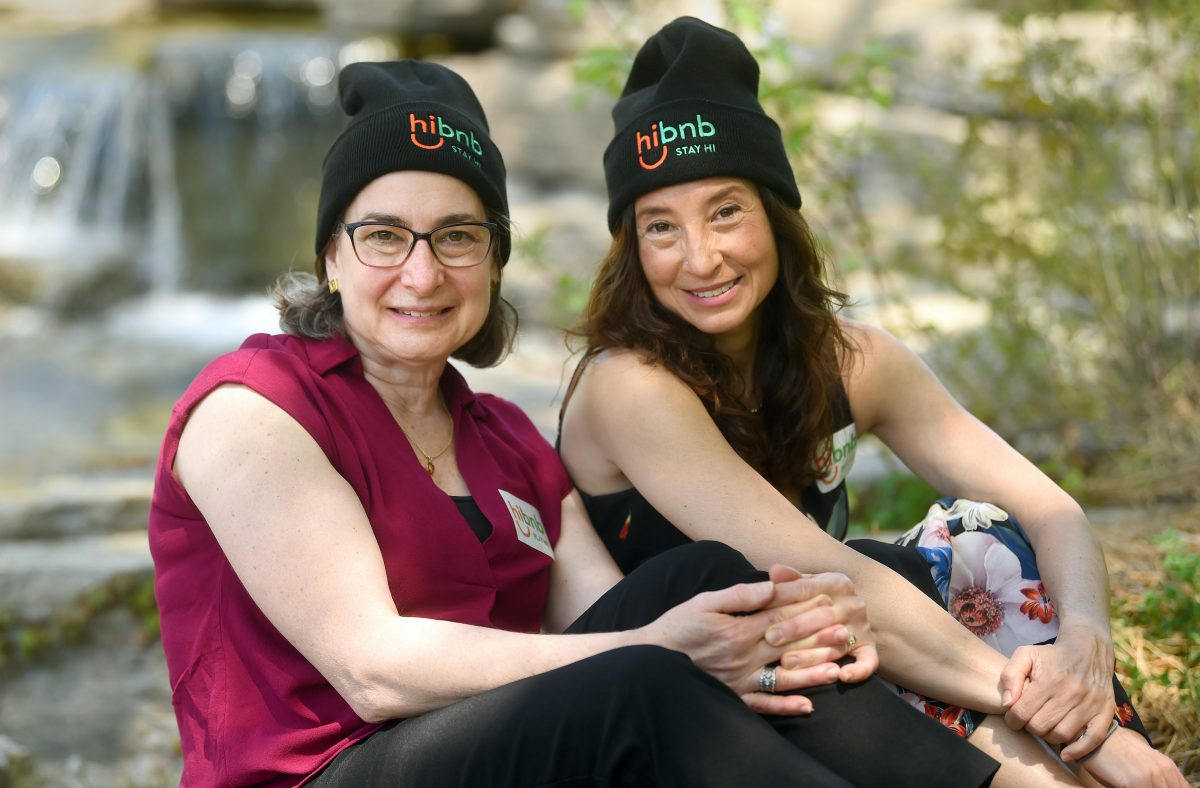










 Artist Ness Lee and writer Vivek Shraya discuss
Artist Ness Lee and writer Vivek Shraya discuss 










